What are the possible health benefits and side effects of beetroot juice?
Introduction
Beetroots occupy an esteemed place.
Their vibrant hue, earthy taste, and myriad health benefits have catapulted them to stardom in the health and wellness community. However, like any other food item, overconsumption or misuse can lead to side effects.
Before we talk about their potential side effects, let’s see what the health benefits of beetroots are.
Beetroot Juice – Health Benefits
A Symphony of Nutrients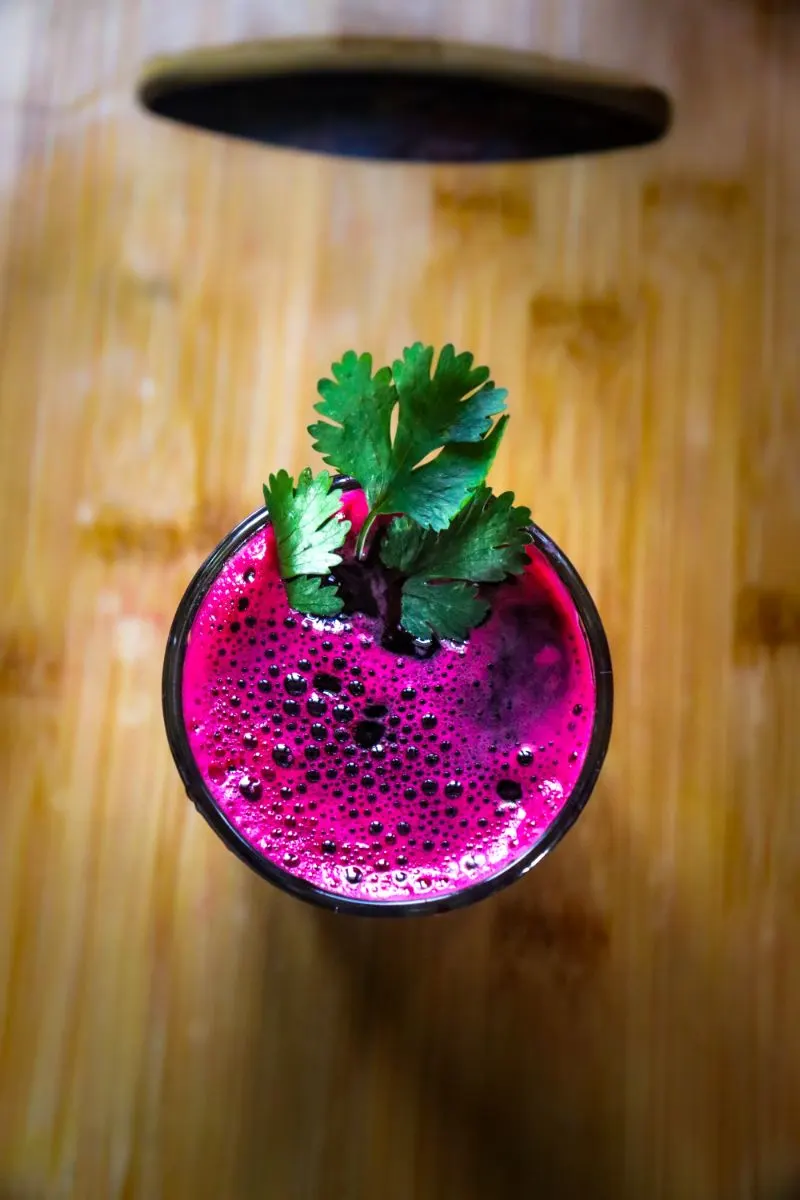
No discussion about beetroots would be complete without acknowledging their impressive nutrient profile.
Beetroots are packed with essential nutrients such as fiber, folate (vitamin B9), manganese, potassium, iron, and vitamin C.
Each of these nutrients plays a vital role in maintaining optimal health, from supporting our immune system to promoting healthy brain function.
A Boost for Cardiovascular Health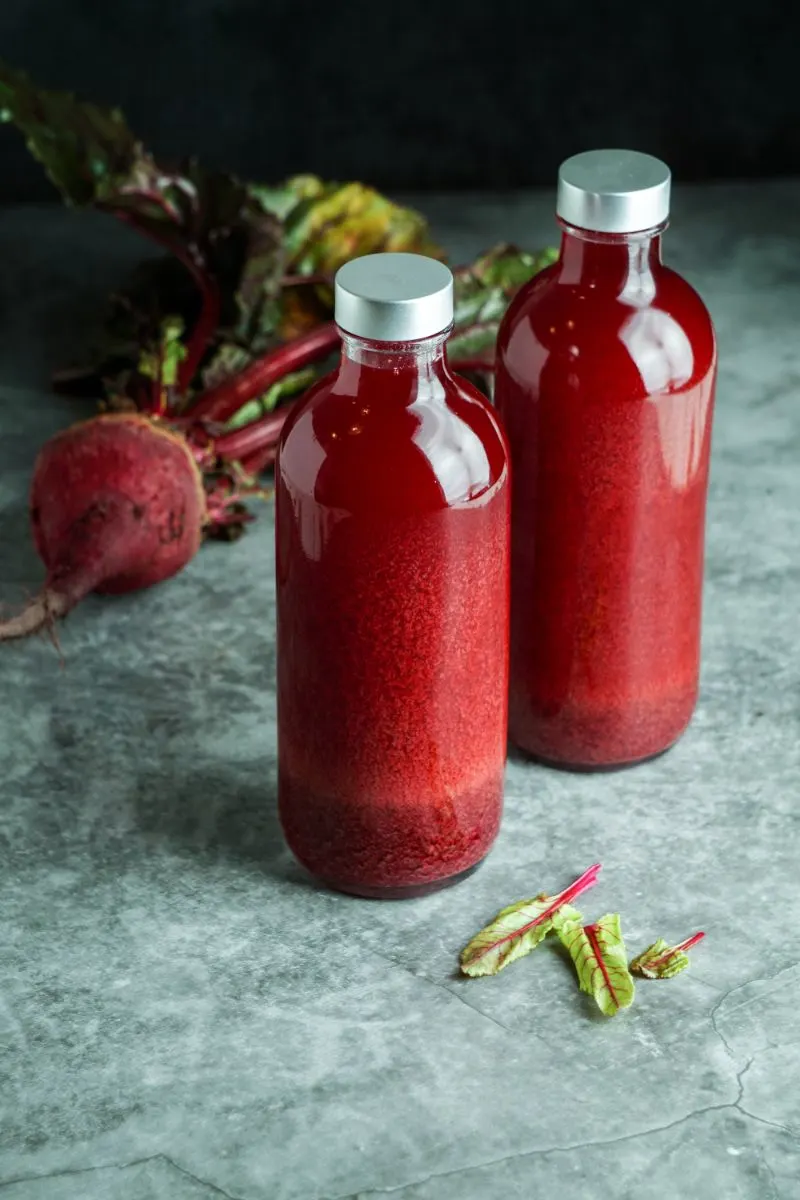
Beets are rich in nitrates, which our bodies convert into nitric oxide.
This molecule helps to dilate blood vessels, reducing blood pressure and improving overall cardiovascular health.
Some studies even suggest that consuming beetroot juice can enhance athletic performance by improving muscle oxygen delivery.
Your Gut’s Best Friend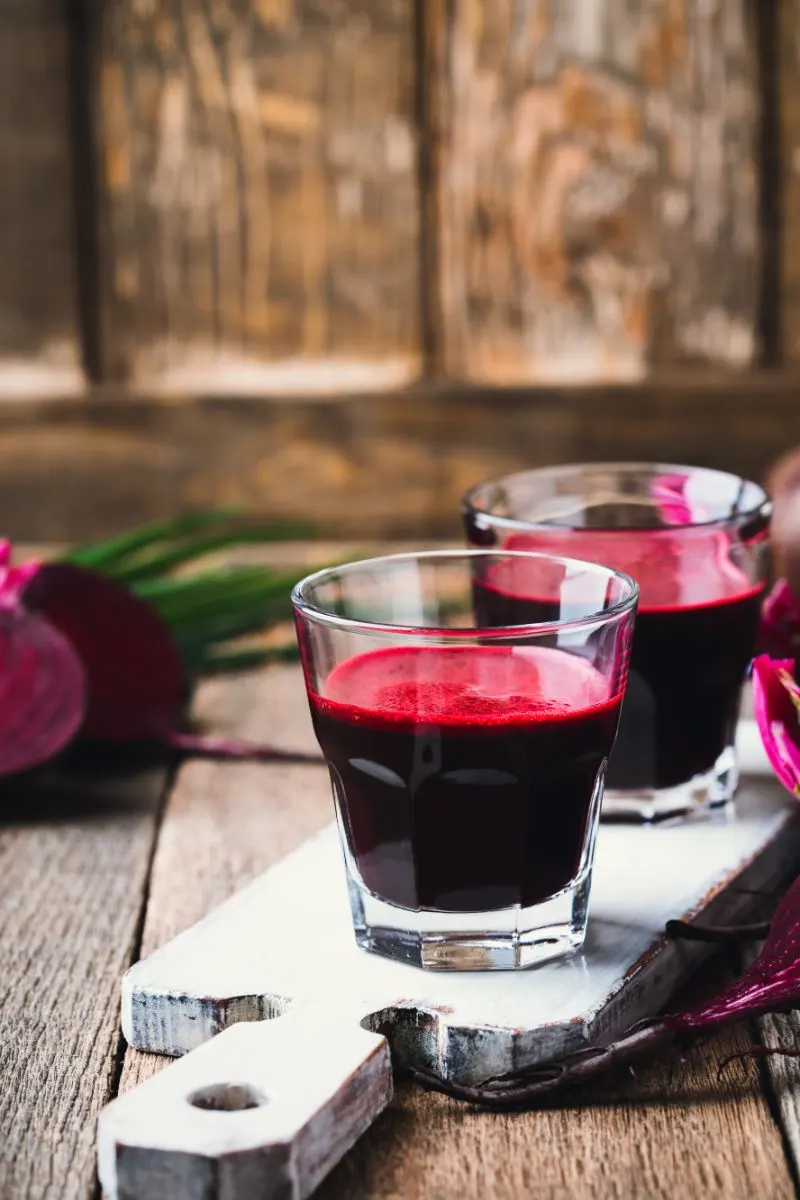
The high fiber content in beetroots not only aids digestion but also promotes gut health.
Dietary fiber serves as food for beneficial gut bacteria, helping to maintain a healthy gut microbiome.
This can lead to improved digestive health and may even play a role in preventing certain diseases.
An Antioxidant Powerhouse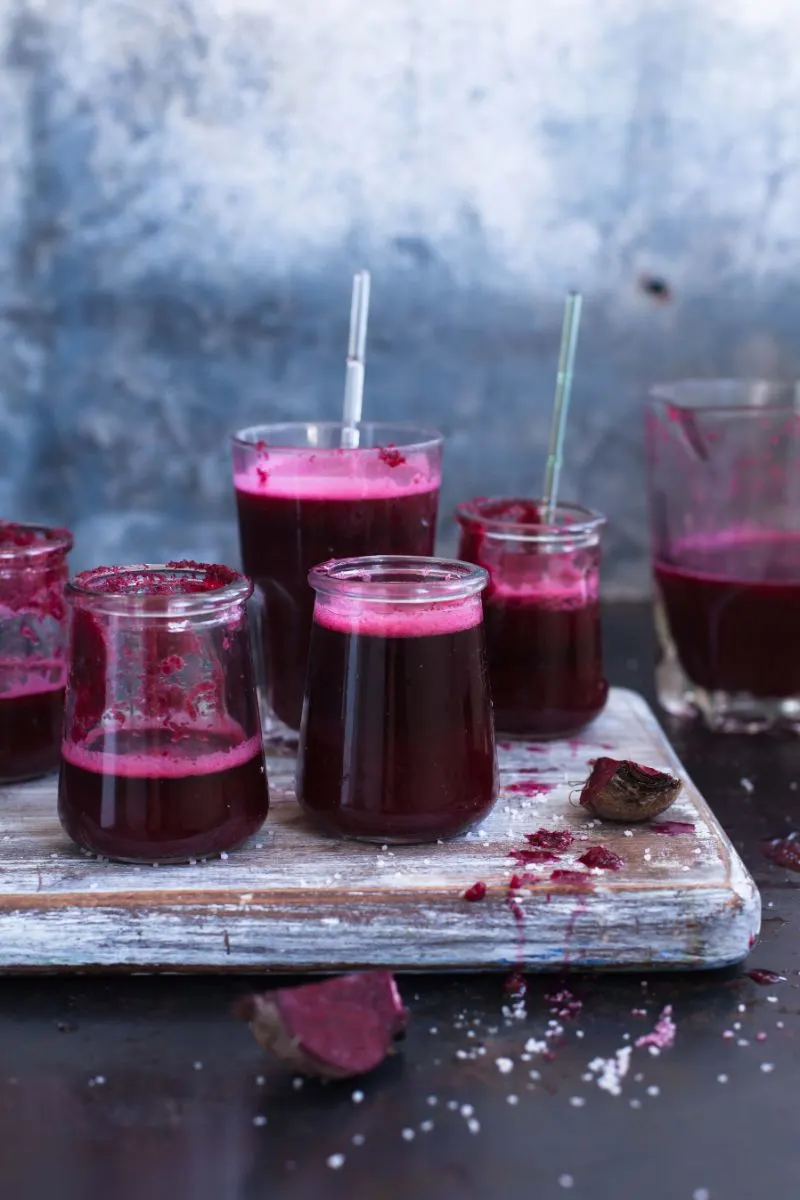
Beetroots are loaded with antioxidants, substances that help protect your cells against damaging free radicals.
The betalains in beets, in particular, have been shown to have potent antioxidant and anti-inflammatory properties.
This not only helps to protect against chronic diseases but can also aid recovery after intense physical activity.
Strengthening Your Bones
Beetroots are a good source of minerals like magnesium and copper, both of which are crucial for healthy bones.
Along with folate, these nutrients contribute to bone growth and maintenance, reducing the risk of osteoporosis.
Blood Sugar Management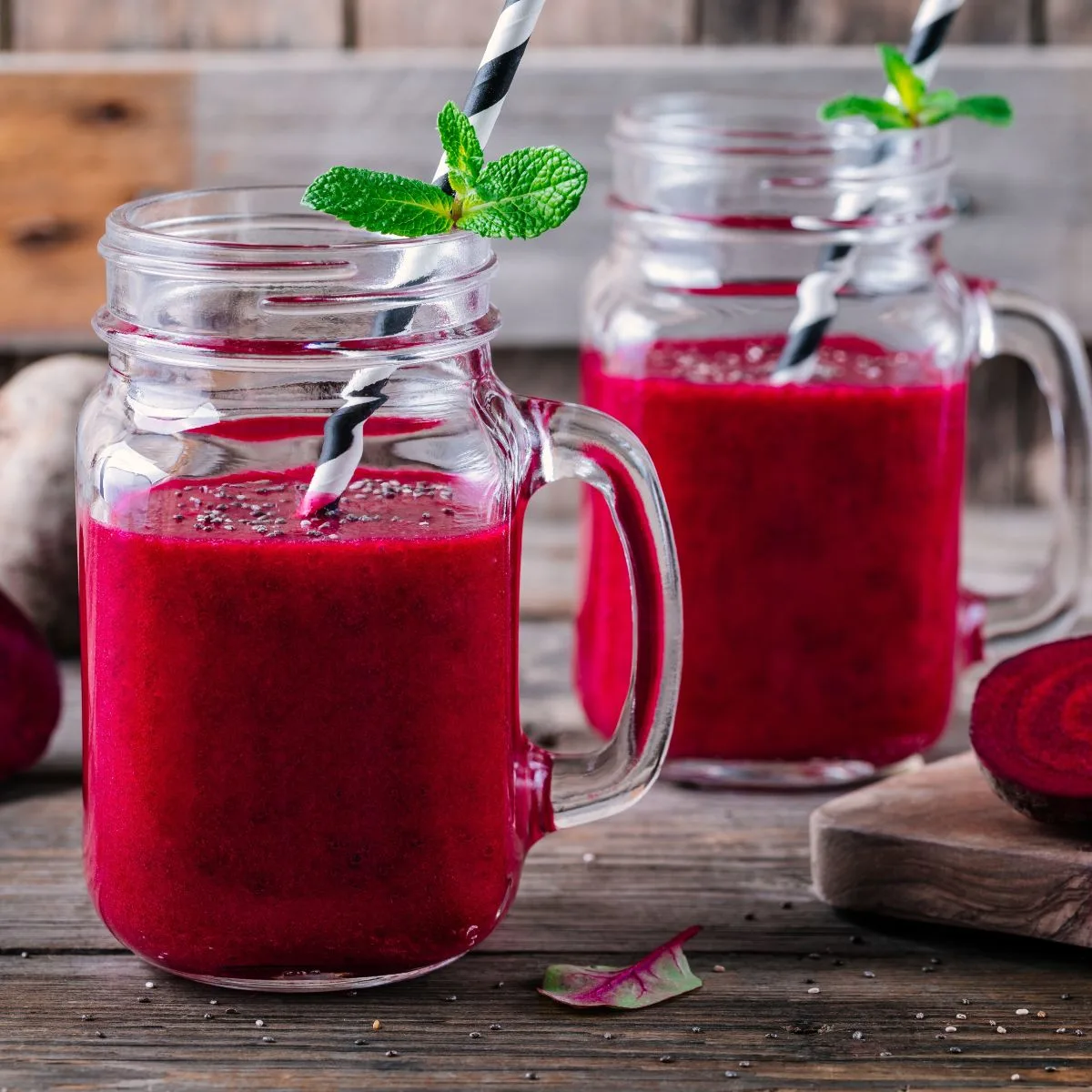
While beetroots do contain some sugar, they have a low glycemic index.
This means they release their sugars slowly into the bloodstream, preventing spikes in blood sugar levels.
This makes them a great food choice for people looking to manage their blood sugar levels.
Beetroot Juice – Side Effects
The Colorful Conundrum
Beetroots are rich in betanin, a pigment that gives them their distinctive red color.
While it’s a potent antioxidant, it can also color your urine and stools pink or red, a harmless condition known as beeturia.
Although startling at first glance, this is a benign side effect and nothing to worry about. However, if you’re prone to panic at the sight of colored bodily fluids, it might be wise to moderate your beetroot consumption.
Nitrate Intake and Its Implications
Beetroots are high in nitrates, compounds that can dilate blood vessels and enhance athletic performance. However, excessive nitrate intake can disrupt the body’s nitric oxide balance and potentially contribute to the formation of nitrosamines, compounds linked to cancer.
While the risk is low, especially when consuming whole beets, it’s something to consider if you’re downing liters of beetroot juice daily.
The Gas and Gut Discomfort Dilemma
While beetroots’ high fiber content is great for digestion, too much can lead to gas and gut discomfort.
This is particularly true for those with irritable bowel syndrome or other digestive disorders. Remember, moderation is key.
The Oxalate Overload
For individuals prone to kidney stones, particularly those made of calcium oxalate, beetroots might pose a problem due to their high oxalate content.
Regular consumption can contribute to the formation of these painful stones.
It’s best to consult your healthcare provider before adding beets to your diet if you’re at risk.
Can Stain Your Teeth
While not a health concern, the intense pigments in beetroot juice can temporarily stain your teeth.
Drinking water or brushing your teeth after consuming beetroot juice can help prevent this.
The Beetroot and Blood Pressure Paradox
Beetroot’s ability to lower blood pressure is often touted as a benefit. However, for those on blood pressure medication or with naturally low blood pressure, this could potentially cause problems.
Always consult with your doctor before making significant dietary changes.
Allergic Reactions: A Rare but Real Risk
Though rare, some people may develop an allergic reaction to beetroots.
Symptoms can range from hives and itchiness to more severe reactions like difficulty breathing.
If you experience any of these symptoms after consuming beetroot, seek immediate medical attention.
Potential Liver Damage
Some studies even suggest that beetroot juice could be an effective treatment for non-alcoholic fatty liver disease (NAFLD) in adults source. Furthermore, animal studies have shown that beetroot extract can mitigate liver injury.
However, it’s important to note that these preliminary studies are often conducted on animals or small groups of people. Additional research is needed to fully understand the effects of beetroot juice on liver health in larger human populations.
Some sources suggest that excessive consumption of beetroot juice could lead to liver damage source. This potential risk may be associated with the high betaine content in beets.
While betaine can be beneficial, like any substance, it could potentially cause harm if consumed excessively over a long duration.
Takeaway
Beetroots, like any superfood, come with their share of pros and cons.
While they’re packed with essential nutrients and offer numerous health benefits, potential side effects should not be overlooked.
Understanding these can help you enjoy this vibrant vegetable in a way that optimizes its benefits and minimizes any risks.
Remember, the key lies in balance and moderation.
As the saying goes, “Too much of a good thing can be a bad thing.” So, enjoy your beetroots, but do so wisely.
Happy eating!
READ THIS NEXT:
Is Hummus Good For Acid Reflux?
